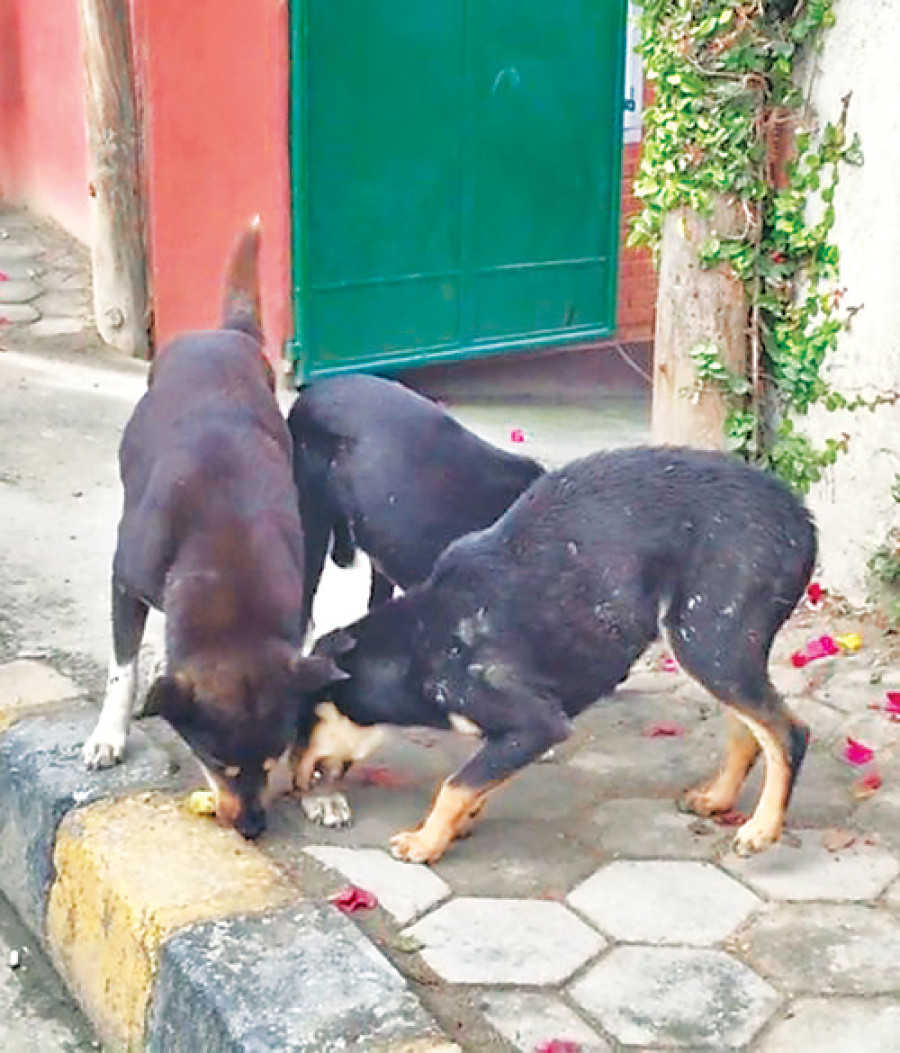Valley
Kathmandu Ward 20 to be announced stray dog free zone
The Kathmandu Metropolitan City (KMC) is set to announce Ward no. 20 as “stray dog free zone” on Thursday, with municipal officials looking to replicate the programme in all 35 wards.
Anup Ojha
The Kathmandu Metropolitan City (KMC) is set to announce Ward no. 20 as “stray dog free zone” on Thursday, with municipal officials looking to replicate the programme in all 35 wards.
As per the plan, dogs in Basantapur and its surrounding areas will be sterialised and vaccinated for rabies as pre-emptive measures to avoid population growth and spread of the disease.
According to Hari Kumar Shrestha, chief of Public Health Division at the KMC, the municipal staffs have already completed vaccination and sterilisation of more than 200 dogs in the areas.
Basantapur and inner part of the area that lead to Teku in the south and Ason, Indra Chowk in the north are famous for stray dogs, which become nuisance to visitors to the place. People also mistreat the stray dogs.
Basantapur area has more than 150 stray dogs to be sterialised and vaccinated, according to Shrestha.
The KMC last month set up its office in Teku, where three veterinary doctors have been deployed with six people being employed to catch
stray dogs and bring them to the office for treatment. A
separate van has been
used for the purpose, and around 30 youths have been doing voluntarily work for the campaign.
Chief and Executive at the KMC Rudra Singh Tamang reiterated his commitment to manage street dogs in all 35 wards in three years’ time.
“We are working with several organisations to manage stray dogs,” said Tamang, “We are running awareness campaigns to make the community more responsible towards stray dogs.”
The metropolis had launched the campaign at the beginning of this year to manage street dogs inside Singha Durbar with support from the Human Society International and the Jane Goodall Institute. A total of 120 stray dogs were sterilised and vaccinated on the Singha Durbar premises at the time.
The metropolis had divided the city into eight regions to carry out its stray dog management programme named “Manumitra” [man’s friend]. The metropolis has been holding meetings with ward citizen forums, local health professionals, political leaders, clubs and organisations to make the campaign a success within the stipulated time, according to KMC chief Tamang. “Our success in managing the community dogs depends on the commitment of the community people. On this front, we are doing everything we possibly can in mobilising the locals in the wards,” he said.
There are an estimated 22,000 street dogs in the 35 wards in Kathmandu. A recent report of the Department of Health Services showed that nearly 2,000 people are bitten by stray dogs in Kathmandu alone. Around 40,000 people visit health facilities for the anti-rabies vaccine each year, with more than 96 percent cases being to dog bites. Around 150 people die in the country each year due to rabies.




 19.12°C Kathmandu
19.12°C Kathmandu.jpg)









%20(1).jpg&w=300&height=200)

